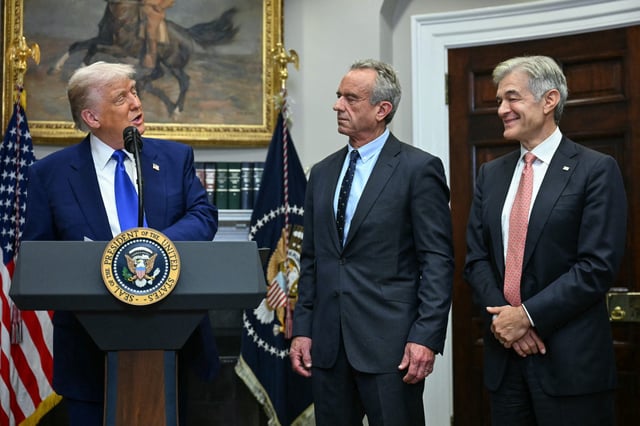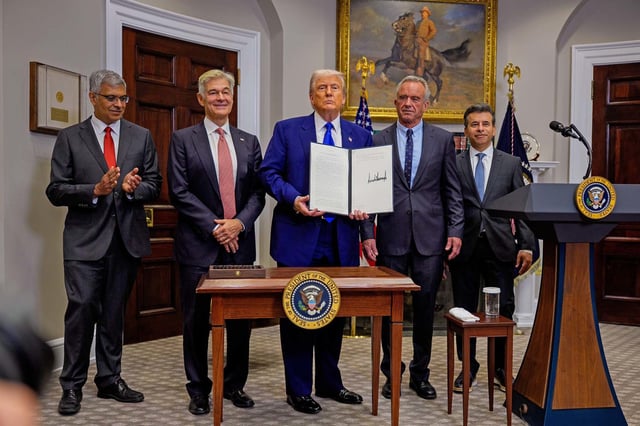Overview
- President Trump signed an executive order reintroducing a 'Most Favored Nation' pricing model to align U.S. drug costs with the lowest prices in comparable developed countries.
- The policy directs Health and Human Services Secretary Robert F. Kennedy Jr. to establish price targets within 30 days and explore regulatory actions or drug imports if manufacturers do not comply.
- Critics, including the pharmaceutical industry, warn the plan could hinder innovation, reduce R&D investment, and lead to legal challenges over the administration's authority to enforce such measures.
- Analysts predict limited immediate impact on generic drug makers but expect pressure on brand-name pharmaceutical companies, with potential ripple effects on global markets.
- The implementation timeline remains uncertain, as legal challenges and the lack of detailed enforcement mechanisms cloud the policy's future.


